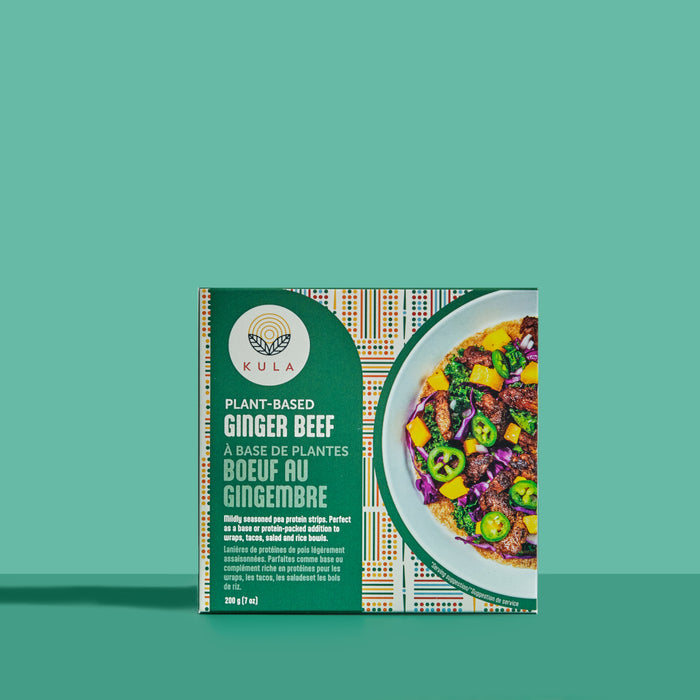Everything About Healthy And Balanced Food: Advantages of Checking Out Plant Based Options
The conversation bordering plant-based diet regimens has actually obtained substantial interest in the last few years. Lots of individuals are exploring the potential health benefits, dietary benefits, and environmental impacts connected with these dietary options. As individuals end up being a lot more conscious of their food's impact on wellness and sustainability, questions arise concerning the usefulness of embracing such a way of life. What specific adjustments can one anticipate, and exactly how might these choices improve not just personal wellness however also the earth's future?
Recognizing Plant-Based Diet Plans
Although many individuals connect plant-based diets mostly with vegetarianism or veganism, these diet plans can encompass a variety of eating patterns that focus on whole, minimally refined plant foods. Such diets often consist of fruits, vegetables, entire grains, seeds, vegetables, and nuts, while getting rid of or restricting animal items. This flexibility enables people to tailor their nutritional choices according to personal choices and dietary needs. Some might take on a mainly plant-based diet regimen while still occasionally consuming meat or dairy products, frequently described as a flexitarian strategy. The focus stays on including more plant foods, which can cause a varied array of meals and tastes. Understanding these different analyses of plant-based consuming is important for appreciating its availability and allure in contemporary food culture.
Health And Wellness Perks of Plant-Based Foods
The wellness advantages of plant-based foods are significant, providing a nutrient density benefit that sustains total health. Study indicates that these foods can improve heart health and play a necessary duty in reliable weight monitoring. By including more plant-based options, individuals may improve their dietary options and advertise long-lasting health and wellness.
Nutrient Thickness Benefit
Nutrient thickness plays a necessary duty in the wellness advantages of plant-based foods, making them an engaging option for those seeking a balanced diet. Plant-based foods, such as fruits, vegetables, vegetables, nuts, and entire grains, are frequently rich in important vitamins, minerals, and antioxidants while being reduced in calories. This high nutrient density enables individuals to eat less calories while still fulfilling their dietary requirements. Additionally, these foods are packed with nutritional fiber, advertising digestion health and wellness and aiding in weight management. By including nutrient-dense plant-based alternatives, consumers can enhance their overall wellness, support their immune systems, and reduce the threat of persistent illness. Ultimately, the nutrient thickness of plant-based foods highlights their significance in a health-conscious lifestyle.
Heart Wellness Enhancement

Weight Monitoring Assistance
In addition to advertising heart health and wellness, a plant-based diet can considerably assist in weight management. This nutritional technique emphasizes whole foods such as fruits, veggies, legumes, nuts, and entire grains, which are normally lower in calories and greater in fiber compared to animal-based items. The high fiber content aids enhance satiation, decreasing total calorie intake. Furthermore, plant-based diet regimens are typically abundant in vital nutrients while reduced in undesirable fats, making it easier to preserve a healthy and balanced weight. Gluten Free BBQ Sauce. Study indicates that people that adopt a plant-based way of life often tend to have lower body mass indexes (BMIs) and experience more effective fat burning compared to those who take in meat-heavy diet regimens. Consequently, accepting plant-based alternatives is a strategic choice for effective weight administration
Nutritional Worth of Plant-Based Components
Plant-based components are abundant in essential nutrients, providing a diverse variety of vitamins, minerals, and anti-oxidants that add to overall health. A comparison of protein sources exposes that while animal products are commonly watched as superior, many plant-based options offer sufficient protein and various other valuable substances. Recognizing the dietary worth of these active ingredients can aid people make educated nutritional options.
Necessary Nutrients in Plants
Nutrient-rich active ingredients located in plants use a varied variety of necessary minerals and vitamins that contribute significantly to general health and wellness. These active ingredients are rich in vitamins A, C, and K, which sustain immune feature, vision, and blood clot, respectively. Furthermore, plants provide vital minerals such as calcium, potassium, and magnesium, critical for heart wellness, muscle mass function, and bone toughness. The existence of fiber in plant-based foods aids food digestion and advertises a healthy intestine microbiome. Anti-oxidants, found perfectly in fruits and veggies, help battle oxidative tension and reduce swelling. Several plant foods are low in calories yet high in nutrients, making them an excellent option for those looking for to maintain a healthy and balanced weight while ensuring suitable nutrient intake.

Contrasting Healthy Protein Resources
Healthy protein resources vary considerably in their nutritional accounts, with plant-based components providing distinct advantages. Unlike animal healthy proteins, which usually have hydrogenated fats and cholesterol, plant healthy proteins have a tendency to be lower in these unhealthy parts. Legumes, nuts, seeds, and entire grains are rich in important amino acids, fiber, vitamins, and minerals. For instance, lentils provide high healthy protein material alongside significant iron and folate, while quinoa is a full healthy protein, providing all 9 crucial amino acids. Furthermore, plant-based proteins are usually come with by antioxidants and phytochemicals that sustain total health and wellness. The change to plant-based protein sources not only boosts dietary consumption however also straightens with lasting dietary practices, lowering environmental influence and promoting lasting health and wellness advantages.
Environmental Effect of Plant-Based Eating
As understanding of climate adjustment grows, lots of individuals are discovering sustainable dietary selections that can considerably minimize their ecological impact. Plant-based eating has actually emerged as a substantial factor to reducing greenhouse gas emissions, which are mainly connected with animals production. The cultivation of fruits, veggies, grains, and beans usually calls for fewer resources, such as water and land, compared to animal farming. Furthermore, plant-based diet regimens can lead to decreased logging, as much less land is required for grazing animals or growing animal feed. By moving towards plant-based options, customers can sustain biodiversity and advertise much healthier environments. On the whole, accepting plant-based consuming home not just advantages individual health and wellness but likewise represents a vital step toward environmental sustainability and preservation initiatives.
Conquering Common Misconceptions
While lots of people identify the advantages of a plant-based diet plan, several mistaken beliefs usually deter them from totally welcoming this lifestyle. An usual idea is that plant-based diets lack adequate protein; however, many plant sources, such as legumes, nuts, and tofu, supply ample healthy protein. In addition, some presume that this diet is expensive, when as a matter of fact, staples like beans, rice, and seasonal veggies can be quite budget-friendly. Another misconception is that plant-based consuming is excessively restrictive, whereas it really uses a diverse variety of foods and flavors. Several worry that a plant-based diet may lead to deficiencies, yet with appropriate planning, people can get all necessary nutrients, including vitamins and minerals, while appreciating a broad variety of delicious dishes. Large Tips for Transitioning to a Plant-Based Way of living
Making the shift to a plant-based lifestyle can be an enhancing experience, though it commonly needs some advice to browse the first changes. Individuals are motivated to begin progressively, including even more fruits, veggies, vegetables, and whole grains into their dishes while minimizing meat and milk consumption. Dish preparation is vital; preparing an once a week menu can assist alleviate the adjustment and prevent last-minute harmful selections. Exploring cooking approaches and new recipes can likewise keep and enhance the experience excitement regarding plant-based consuming. In addition, signing up with support system or communities can provide motivation and share important suggestions. Staying informed about nutrition guarantees balanced dishes, protecting against shortages while fostering a healthy and balanced, satisfying plant-based way of life.
Delicious Plant-Based Dish Ideas
Discovering delicious plant-based meal concepts can inspire people to welcome a much more nourishing diet. One prominent alternative is a hearty quinoa salad, featuring cherry tomatoes, cucumber, and a vibrant lemon-tahini dressing. One more fave is a savory lentil stew, packed with carrots, celery, and aromatic natural herbs, perfect for a soothing supper. For morning meal, overnight oats made with almond milk, chia seeds, and topped with fresh berries give a healthy begin to the day. In addition, a vibrant vegetable stir-fry with tofu and a range of vivid veggies can be a fast yet satisfying meal. Creamy avocado toast on whole-grain bread, sprinkled with flavors and seeds, uses a straightforward yet flavorful snack. These meals showcase the range and richness of plant-based eating.

Regularly Asked Concerns
Can a Plant-Based Diet Plan Provide Sufficient Protein?
The question of whether a plant-based diet regimen can supply sufficient healthy protein is why not look here typical. Various resources, consisting of legumes, nuts, seeds, and entire grains, can satisfy protein requires efficiently, sustaining a balanced and nutritious diet regimen for individuals.
Are Plant-Based Diet Plans Appropriate for Kid?
The suitability of plant-based diet regimens for kids depends on cautious planning. Appropriate nutrients should be assured, including vitamins, healthy proteins, and minerals. With appropriate advice, such diet plans can sustain healthy growth and growth in children.
Just how Do I Dine Out on a Plant-Based Diet plan?
Eating in restaurants on a plant-based diet includes looking for restaurants with varied food selections, asking for alterations, and exploring vegan-friendly choices. Preparation in advance and communicating dietary choices can enhance the dining experience while preserving nutritional choices.
What Are Typical Irritants in Plant-Based Foods?
Usual allergens in plant-based foods include soy, gluten, nuts, and seeds - BBQ Sauces. Individuals complying with a plant-based diet regimen needs to recognize these allergens and check out tags carefully to prevent damaging responses and guarantee secure intake
Can Plant-Based Diets Assist With Weight Loss?
Research indicates that embracing a plant-based diet plan may assist in fat burning due to its generally lower calorie density and higher fiber content. This combination can enhance satiety, helping individuals manage their caloric intake effectively. Many people associate plant-based diets review mostly with vegetarianism or veganism, these diets can incorporate a large range of eating patterns that focus on entire, minimally refined plant foods. Nutrient density plays a necessary function in the health and wellness benefits of plant-based foods, making them a compelling choice for those looking for a well balanced diet regimen. Plant-based diet plans have been shown to significantly enhance heart health, as they frequently contain elements that sustain cardio feature. In enhancement to promoting heart health, a plant-based diet regimen can significantly help in weight management. An usual idea is that plant-based diet plans lack enough protein; however, countless plant resources, such as legumes, nuts, and tofu, give adequate protein.